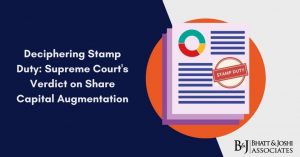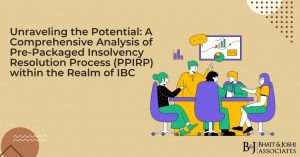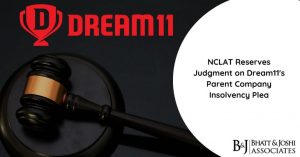Corporate Legal Battle: TATA vs MISTRY (PART 2)
Corporate Legal Battle: TATA vs MISTRY (PART 2)
Check Part 1 of Tata vs Mistry Corporate Legal Battle, here
After the judgement of Hon’ble National Company Law Tribunal, Interlocutory Applications have been preferred by the Registrar of Companies, Mumbai for seeking amendment in Judgment.
![[BREAKING] Supreme Court to pronounce Judgment tomorrow in Tata Sons v. Cyrus Mistry dispute](https://gumlet.assettype.com/barandbench%2Fimport%2F2018%2F08%2Fratan-tata-cyrus-mistry-tata-sons-4.jpg?rect=8%2C0%2C889%2C500&auto=format%2Ccompress&fit=max&format=webp&w=768&dpr=1.3)
JUDGEMENT OF HON’BLE NATIONAL COMPANY LAW APPELLATE TRIBUNAL (2018)
Hon’ble National Company Law Appellate Tribunal held that the removal of Mistry from his post was neither discussed nor expected as the records show the company under his leadership flourished and hence a case of lack of performance cannot be built. Hence, he was restored as Director of various companies and even the Executive Chairman of Tata Sons but after four weeks of the judgment.
While Hon’ble National Company Law Appellate Tribunal , accepting the consequences of this article in light of the facts, ordered Tata sons to refrain from invoking against Shapoorji Pallonji Group. 7 Hon’ble National Company Law Appellate Tribunal , on the other hand, identified a case of prejudice and oppression by the board against the minority shareholders and the company. It held that the conversion from public to private was hurriedly done amidst a pending litigation and it was illegal and unsustainable as it did not even follow proper procedures under Section 14 clause 8. The verdict asked the Registrar of Companies to make the correction and declared Tata to remain public. . Although Hon’ble National Company Law Appellate Tribunal accepted this claim, they refused to accept that legitimate expectations, which are a result of mutual trust and confidence, arising from such a partnership can be a factor of oppression. Through a plethora of judgments, the Hon’ble Supreme Courthas established certain principles in order to determine a company as a quasi-partnership but Hon’ble National Company Law Appellate Tribunal ignored these principles and used its own understanding to back such reasoning.
IT also held that mismanagement can be easily visible through the losses incurred by Tata Sons and other firms through prejudicial decisions taken by the respective Board of Directors which were essentially filled with a majority of Tata Trust’s representatives. Hon’ble National Company Law Appellate Tribunal set aside the judgment and ruled in favour of Mistry and Shapoorji Pallonji Group. These are very contrasting judgments with respect to every aspect of law which the case dealt with.
The same now has been appealed to the Hon’ble Supreme Court by Tata Sons. Post the stay of the Hon’ble National Company Law Appellate Tribunal order by the Supreme Court, Mistry appealed against this same order seeking judicial protection and Board of Directors representation for his family i.e. the minority shareholders. This new appeal will be heard along with the appeal of Tata Sons before a Hon’ble Supreme Court bench comprising Chief Justice S.A. Bobde, Justice Surya Kant and Justice B.R. Gavai.
RATAN TATA APPEAL IN SUPREME COURT
Tata Sons (Private) Limited has come up with two appeals in Civil Appeal Nos.1314 of 2020, challenging a final order dated 18/12/2019 passed by the National Company Law Appellate Tribunal, which is,
- Holding as illegal, the proceedings of the sixth meeting of the Board of Directors of TATA Sons Limited held on 24.10.2016 in so far as it relates to the removal of Shri Cyrus Mistry.
- Restoring the position of Cyrus Mistry as the Executive Chairman of Tata Sons Limited and consequently as a Director of the Tata Companies for the rest of the tenure;
- Declaring as illegal the appointment of someone else in the place of Cyrus Mistry as Executive Chairman;
- Restraining Shri Ratan N. Tata and the nominees of Tata Trust from taking any decision in advance;
- Restraining the Company, its Board of Directors and Shareholders from exercising the power under Article 75 of the Articles of Association against the minority members except in exceptional circumstances and in the interest of the Company; and
- Declaring it illegal, the decision of the Registrar of Companies for changing the status of Tata Sons Limited from being a public company into a private company.
QUESTION OF THE LAW ARISES IN THE CASE
- Whether the formation of opinion by the Appellate Tribunal that the company’s affairs have been or are being conducted in a manner prejudicial and oppressive to some members and that the facts otherwise justify the winding up of the company on just and equitable ground, is in tune with the well settled principles and parameters, especially in the light of the fact that the findings of Hon’ble National Company Law Tribunal on facts were not individually and specifically overturned by the Appellate Tribunal ?
- Whether the reliefs granted and the directions issued by the Appellate Tribunal, including the reinstatement of Cyrus Mistry into the Board of Tata Sons and other Tata companies, are in consonance with the pleadings made, the reliefs sought and the powers available under Subsection (2) of Section 242 ?
- Whether the Appellate Tribunal could have, in law, muted the power of the Company under Article 75 of the Articles of Association, to demand any member to transfer his ordinary shares, by simply injuncting the company from exercising such a right without setting aside the Article ?
- Whether the characterization by the Tribunal, of the affirmative voting rights available under Article 121 to the Directors nominated by the Trusts in terms of Article 104B, as oppressive and prejudicial, is justified especially after the challenge to these Articles have been given up expressly and whether the Tribunal could have granted a direction to Ratan Tata and the Nominee Directors virtually nullifying the effect of these Articles ?
- Whether the reconversion of Tata Sons from a public company into a private company, required the necessary approval under section 14 of the Companies Act, 2013 or at least an action under section 43A(4) of the Companies Act, 1956 during the period from 2000 (when Act 53 of 2000 came into force) to 2013 (when the 2013 Act was enacted) as held by Hon’ble National Company Law Appellate Tribunal ?
ISSUES BEFORE HONOURABLE Hon’ble Supreme Court(2020)
- What constitutes oppression and mismanagement at a company?
- How far do a tribunal’s powers go when deciding such a case?
- Should nominee directors of a majority shareholder have substantial affirmative powers?
- The legality of Tata Sons’ conversion from public company to private company.
- The fate of Mistry’s directorship on the Tata Sons board. And, what this 5-year long battle says about India’s foremost conglomerate, the Tata Group – with over $100 billion in revenue.
HON’BLE APEX COURT JUDGEMENT ON CYRUS-MISTRY CASE
The Hon’ble Supreme Court has comprehensively dismissed every charge of oppression and mismanagement made by entities owned by Cyrus Mistry against Tata Sons Pvt. Not just that, the court has gone so far as to suggest there never was a case to begin with. That the original cause of action was Mistry’s dismissal as chairman of Tata Sons. Everything else was a dressing up of that cause.
“Though the complainant companies padded up their actual grievance with various historical facts to make a deceptive appearance, the causa proxima for the complaint was the removal of Cyrus Mistry (Cyrus Pallonji Mistry) from the office of executive chairman.” But removal of a chairman, or even director of a company is not grounds enough to determine oppression or prejudicial behaviour, the apex court said whilst overturning the decision of the National Company Law Appellate Tribunal that had found oppression and mismanagement and ordered the reinstatement of Mistry.
While Mistry made several specific charges against Tata Sons in the oppression case, the Hon’ble Supreme Courtexamined only a few. The court’s explanation for this was that the National Company Law Tribunal had dismissed each of the charges whereas the Hon’ble National Company Law Appellate Tribunal overturned only a few of the tribunal’s dismissals. Since tribunals are courts of fact and the Hon’ble Supreme Court of law, it limited its proceedings to the conclusions arrived at by the Hon’ble National Company Law Appellate Tribunal .
On Mistry’s removal as executive chairman of Tata Sons, the top court noted that it is a well settled position that certain failed business decisions or a removal of a person from directorship cannot be called as acts oppressive to minority shareholders. In such a case (under Section 241, 242 of company law) a tribunal, the court said, cannot ask whether the removal was correct/valid but it has to see whether such removal would tantamount to oppression of the minority shareholders.
Both, with regard to Mistry’s oppression case and the Hon’ble National Company Law Appellate Tribunal ’s findings, the top court examined several aspects of the Articles of Association of Tata Sons, including rights such as affirmative votes, pre-consultation with Tata Trusts. It dismissed each of Mistry’s arguments and stated the Tata Group was guided by corporate governance and had included many practices, such as board committees, etc. even though it was not required by law to have them.
Article 121 of Tata Sons’ Articles of Association grants affirmative voting rights to the nominee directors of the Tata Trusts in certain matters. The top court pointed out that such rights are a global norm and in this case they confer only a limited right on the nominee directors. Going by the shareholding, Tata Trusts with 66% could have packed the board, the court said, while noting it didn’t
Article 75 allows Tata Sons to resolve by special resolution the transfer of any shareholder’s shares. Mistry has termed this as coercive. The Hon’ble Supreme Court viewed it as an exit clause. Besides, it said Article 75 had never been invoked and future action is not covered under oppression. Also, Article 75 has existed for decades and Mistry was himself party to an amendment in the year 2000 which gave article 75 in its present form.
The court opined that given the charitable objectives of the Tata Trusts, their nominee directors on board Tata Sons are not like any other ordinary directors. It also questioned whether the need for having independent directors on the board itself was an acknowledgment that not every director could be expected to exercise completely independent judgment irrespective of who nominated them. A nominee director of the Trusts holds a fiduciary duty towards their beneficiaries.
The top court also detailed the shifting arguments of the Mistry side through the five-year long litigation on seeking certain reliefs. The plea for reinstatement of Mistry was later amended to seek proportionate representation on the board. While challenging the affirmative voting rights of the Tata Trusts’ nominee directors on Tata Sons’ board, Mistry’s case sought the same rights for his SP Group. The court termed the request for the same rights as “quite funny”.
CONCLUSION
Thus in fine, all the questions of law are liable to be answered in favour of the appellants Tata group and the appeals filed by the Tata Group are liable to be allowed and the appeal filed by S.P. Group is liable to be dismissed. But before we do that we should also deal with the application moved by S.P. Group before us during the pendency of these proceedings, praying for the alternative relief of directing Tata Sons and others to cause a separation of ownership interests of the S.P. Group in Tata sons through a scheme of reduction of capital by extinguishing the shares held by the S.P. Group in lieu of fair compensation effected through a transfer of proportionate shares of the underlying listed companies, with the balance value of unlisted companies and intangibles including brand value being settled in cash.
Interestingly, such an application was filed after Tata Group moved an application for restraining S.P. Group from raising money by pledging shares and this court passed an order of status quo on 22.09.2020. For the first time S.P. Group seems to have realized the futility of the litigation and the nature of the order that the Tribunal can pass under Section 242. This is reflected in Paragraph 62 of the application, where S.P. Group has stated that they are seeking such an alternative remedy as a means to put an end to the matters complained of.
As a matter of fact, S.P. Group should have sought such relief from the Tribunal even at the beginning. As we have pointed out elsewhere a divorce without acrimony is what is encouraged both in England and in India under the statutory regime.
But in an appeal under Section 423 of the Companies Act, 2013, this Court is concerned with questions of law arising out of the order of Hon’ble National Company Law Appellate Tribunal . Therefore, we will not decide this prayer. It should be pointed out at this stage that Article 75 of the Articles of Association is nothing but a provision for an exit option (though one may think of it as an expulsion option). After attacking Article 75 before Hon’ble National Company Law Tribunal , the S.P. Group cannot ask this Court to go into the question of fixation of fair value compensation for exercising an exit option. What is pleaded in Paragraph 72 of the application for separation of ownership interests, requires an adjudication on facts,of various items. The valuation of the shares of S.P. Group depends upon the value of the stake of Tata Sons in listed equities, unlisted equities, immovable assets etc., and also perhaps the funds raised by SP group on the security/pledge of these shares. Therefore, at this stage and in this Court, we cannot adjudicate on the fair compensation. We will leave it to the parties to take the Article 75 route or any other legally available route in this regard. In the result, all the appeals except C.A. No.1802 of 2020 is allowed and the order of Hon’ble National Company Law Appellate Tribunal dated 18.12.2019 is set aside. The Company Petition C.P. No. 82 of 2016 filed before Hon’ble National Company Law Tribunal by the two Companies belonging to the S.P. Group shall stand dismissed. The appeal C.A. No.1802 of 2020 filed by Cyrus Investments Pvt. Ltd., and Sterling Investments Corporation Pvt. Ltd. is dismissed. There will be no order as to costs. All IAs including the one for causing separation of ownership interests of the S.P. Group in Tata Sons namely IA No.111387 of 2020, are dismissed.
Author: Vinay Sachdev
Editor: Adv. Aditya Bhatt & Adv. Chandni Joshi









